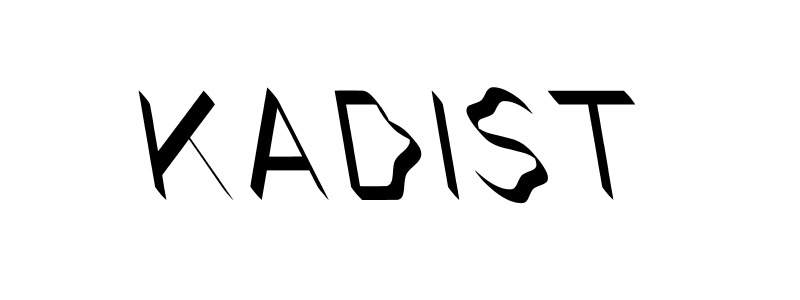Hako
2006 - Film & Video (Film & Video)
Hiraki Sawa
Hako (2006) depicts a mysterious and dystopic landscape where the world becomes flat: distance between different spaces, depth of field and three-dimensional perceptions are canceled. Interiors of a Victorian doll’s house, a rippled seascape, a palm tree forest, and a gravel seashore are superimposed, morphing into each other. The hermetic narrative is charged with psychological and mythological aspects. Hako reflects Sawa’s interests in psychotherapies, in particular, the sand tray therapy, also known as sandplay, created by Dora Kalff. Sandplay asks participants to create their own arrangement of objects in a sandbox by choosing from a wide range of small figures to which the subconscious attaches symbolic meanings. Echoing this process, Sawa creates his imaginary dimensions where rules and selected elements allow for improvisation and play to reveal unconscious processes. Certain elements give visual clues and metaphorically comment on issues such as the hybridity of the human and the non-human. This is indicated by walking trees and a miniature toy clock that is animated to keep real world time in order to ponder the illusionary concept of linear time. Reality is not scientific. As the fantastical becomes everyday and the supernatural becomes commonplace, so does the reverse.
London-based Japanese artist Hiraki Sawa’s video installations and filmic works probe landscapes, psychological dreamlands, domestic interiors, imaginary spaces, ideas of displacement and migration, and above all, the inner self. He weaves animals, people, plants, animated and inanimate objects into a series of surreal sequences to create enigmatic and immersive worlds of sound and image. Employing a combination of digital editing and hand-made methods of cutting, pasting and collaging, Sawa highlights the ambiguous boundaries between facts and fictions and meditates on how remembrance and memory can be manipulated by time, emotion and mental influences.
Colors:
Other related works, blended automatically

© » KADIST
Tomoko Yoneda
2010Yoneda’s Japanese House (2010) series of photographs depicts buildings constructed in Taiwan during the period of Japanese occupation, between 1895 and 1945...

© » KADIST
Koki Tanaka
2009Walking Through is one of a series of videos—sometimes humorous, often absurd—that record the artist’s performative interactions with objects in a particular site...

© » KADIST
Clarissa Tossin
2017Clarissa Tossin’s film Ch’u Mayaa responds to Frank Lloyd Wright’s Hollyhock House (constructed 1919–21) in Los Angeles, an example of Mayan Revival architecture...

© » KADIST
Vincent Leong
2012The photograph Exquisite Eco Living is part of a larger series titled Executive Properties in which he digitally manipulated the images to insert iconic buildings of Kuala Lumpur in the view of derelict spaces also found in the city...

© » KADIST
Motoyuki Daifu
2010Seven family members and a cat all squeezed into the small five-room house, where Motoyuki Daifu grew up in Yokohama...

© » KADIST
Yin-Ju Chen
One Universe, One God, One Nation was inspired by Hannah Arendt’s analysis of space exploration and by the astrological horoscope of Chinese political and military leader Chiang Kai-shek (1887-1975)...

© » KADIST
Xiaoyun Chen
2006State Terrorism in the ultimate form of Pre-Raphaelite Brotherhood features a portrait of the artist wearing a zipped utilitarian jacket reminiscent of a worker’s uniform, with one arm behind his back as if forced to ingest a bundle of stick—a literal portrayal to the definition of fascism...

© » KADIST
Naoya Hatakeyama
Naoya Hatakeyama’s series Rikuzentakata (2011) documents the devastating aftermath of the 2011 Tohoku earthquake and tsunami in Japan...

© » KADIST
Naoya Hatakeyama
Naoya Hatakeyama’s series Rikuzentakata (2011) documents the devastating aftermath of the 2011 Tohoku earthquake and tsunami in Japan...

© » KADIST
Yoan Capote
2007Open Mind is a model created by Capote for a traversable public maze that, when seen from above, resembles the human brain...

© » KADIST
Xiaoyun Chen
2012The lengthy titles in Chen Xiaoyun’s work often appear as colophons to his photographs that invite the viewer to a process of self realization through contemplating the distance between word and image...

© » KADIST
Julieta Aranda
2016The video Swimming in rivers of Glue is composed of various images of nature, exploring the themes of exploration of space and its colonization...

© » KADIST
Yin-Ju Chen
2011This work includes sketches for Extrastellar Evaluations , the project she produced at Kadist...

© » KADIST
Xiaoyun Chen
2006The image of rusted nails, nuts and bolts as shrapnel sandwiched between a fried Chicken burger highlights the contrast between decadence and destruction...

© » KADIST
Yin-Ju Chen
2016Through a semi-fictional approach, Extrastellar Evaluations envisions a version of history in which alien inhabitants, the Lemurians, lived among humans under the guise of various renowned conceptual and minimal artists in the 1960s (Carl Andre, Mel Bochner, and James Turrell to name a few)...

© » KADIST
Runo Lagomarsino
2020Yo también soy humo (I am also smoke) is a 16mm film that has been digitized to video...

© » KADIST
Oded Hirsch
2012Oded Hirsch’s video work Nothing New (2012) utilizes seemingly absurdist tropes to raise more trenchant questions about communal action and collective identity in modern day Israel...

© » KADIST
Pak Sheung Chuen
2008Pak created New York Public Library Projects (NYPLP) (2008) during a residency in New York, using public libraries as exhibition spaces and the books they house as raw materials...


